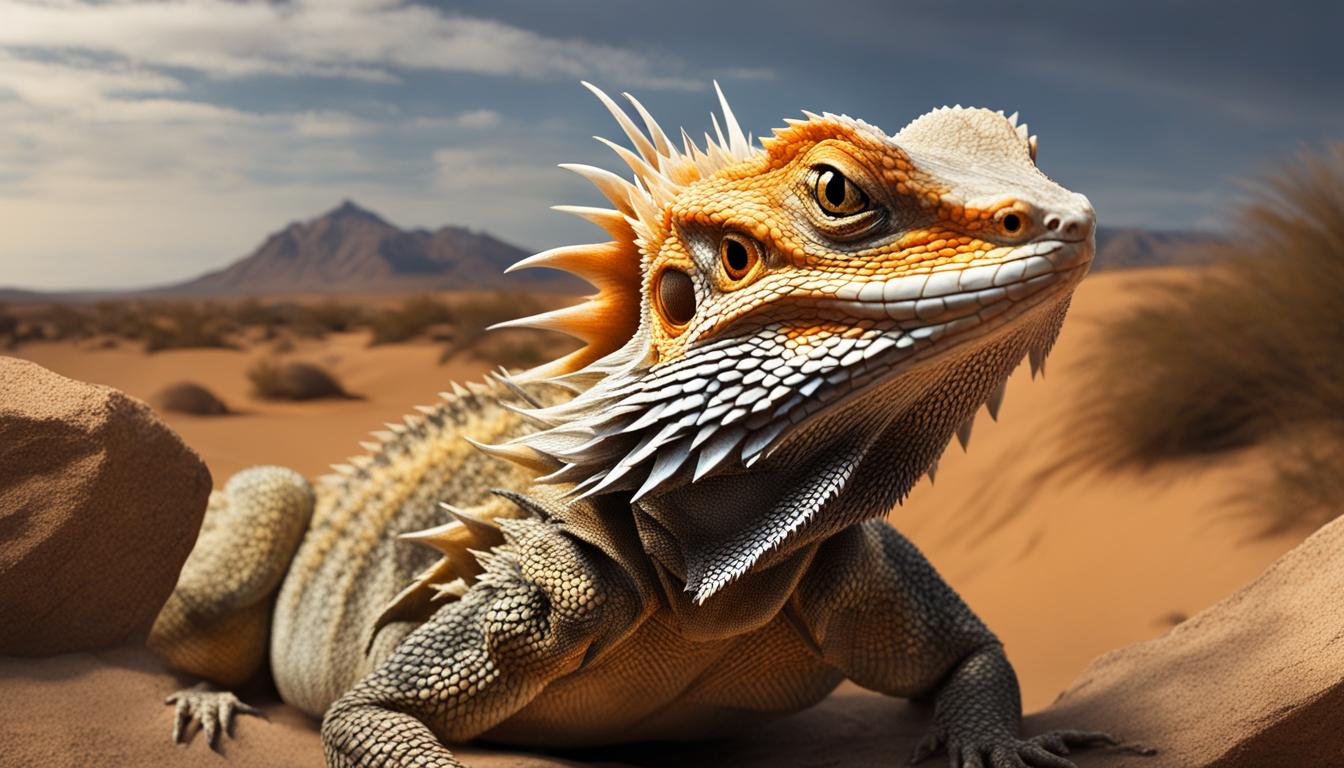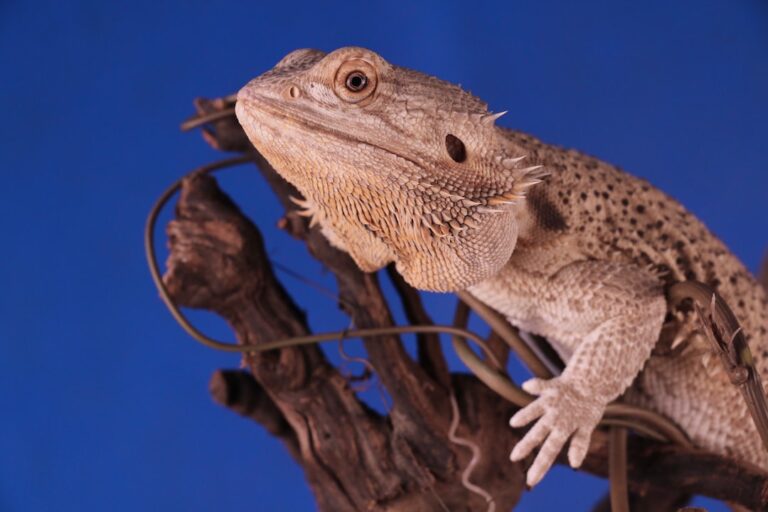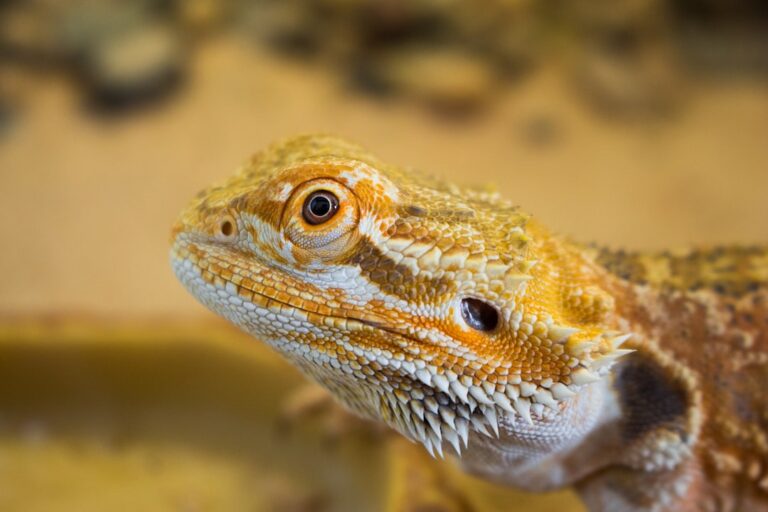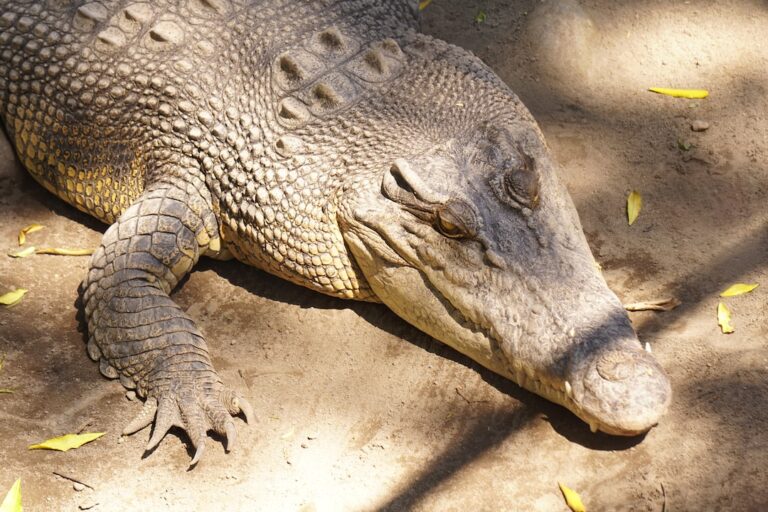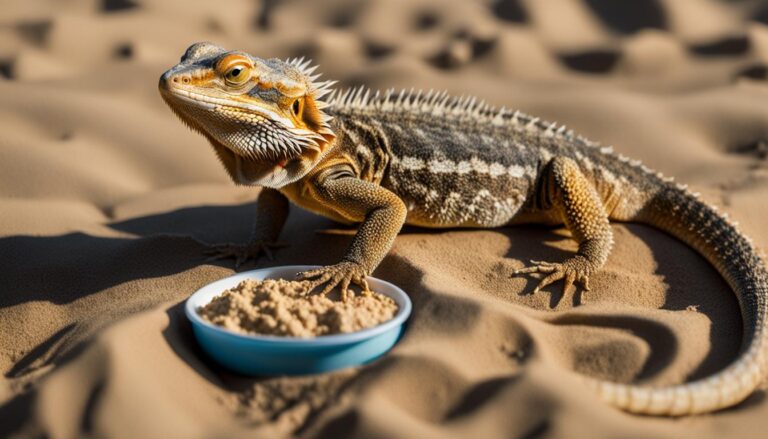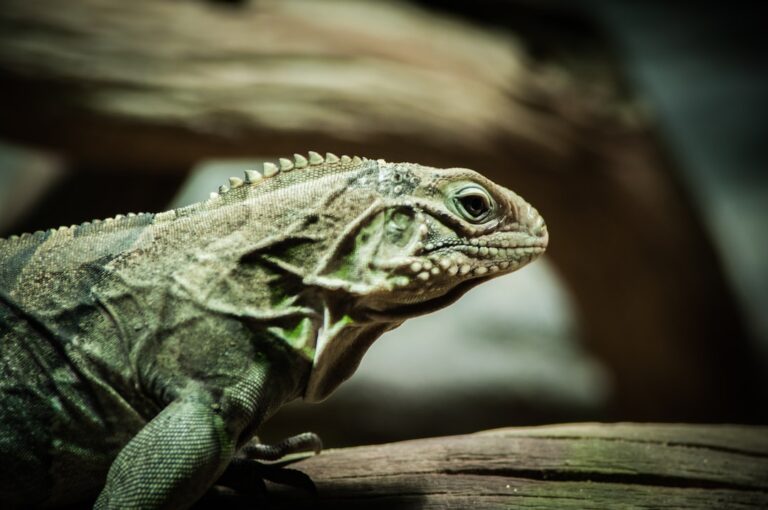Can Bearded Dragons Burp?
Bearded dragons are fascinating reptiles that many people choose as pets. One question that often arises is whether or not bearded dragons can burp. In this article, we will explore the topic of bearded dragon burping and what it could indicate about their health. Understanding the digestive system of bearded dragons and their behaviors will help shed light on this interesting phenomenon. We will also dispel common myths and misconceptions surrounding bearded dragon burping.
Table of Contents
Understanding Bearded Dragon Behaviors
Before delving into the topic of bearded dragon burping, it’s important to have a basic understanding of their behaviors. Bearded dragons exhibit unique behaviors that can be influenced by their environment, health, and overall well-being. By familiarizing ourselves with these behaviors, we can better interpret their actions and determine if there is a cause for concern. This section will provide an overview of common bearded dragon behaviors and what they might indicate.
Bearded dragons are known for their intriguing behaviors that often leave their owners in awe. Whether it’s their quirky head-bobbing dance, their ability to change color based on their mood, or their impressive arm-waving displays, these reptiles offer a captivating glimpse into their world.
Here are some common bearded dragon behaviors and their possible meanings:
- Head-bobbing: This behavior is an essential part of their communication, used to establish dominance or attract a mate.
- Arm-waving: Bearded dragons often raise one of their front arms in a slow, deliberate motion. This behavior can indicate submission or a response to feeling threatened.
- Color changes: Bearded dragons have the remarkable ability to change their coloration. Darker colors may suggest stress or aggression, while lighter colors could indicate relaxation or contentment.
- Basking: Bearded dragons require a heat source to regulate their body temperature. Basking is a natural behavior where they soak up heat and UVB rays to aid digestion and overall health.
- Glass surfing: If you notice your bearded dragon repeatedly scratching against the glass of their enclosure, it could be a sign of stress or boredom.
- Burrowing: Bearded dragons are known to dig and burrow in their substrate. This behavior mimics their natural instinct to create shelter and thermoregulate.
By observing these behaviors and paying attention to any changes or variations, you can gain valuable insights into your bearded dragon’s well-being. Providing a proper living environment, regular veterinary care, and a balanced diet are key components of responsible bearded dragon care.
Understanding bearded dragon behaviors is an essential part of providing optimal care for these fascinating reptiles. By recognizing their natural behaviors and their meanings, we can ensure their health and happiness in our care.
Dispelling Myths: Can Bearded Dragons Actually Burp?
There are several myths and misconceptions surrounding bearded dragon burping. In this section, we will debunk these myths and provide accurate information about burping in bearded dragons. Understanding the truth behind this behavior is essential for responsible bearded dragon ownership and care.
The Anatomy of Burping in Bearded Dragons
To understand bearded dragon burping, we must first delve into their anatomy. Bearded dragons have a unique digestive system that allows them to process their food efficiently. Burping occurs when they release excess gas from their stomach through their mouth.
When bearded dragons eat, they swallow air along with their food. This air can accumulate in their digestive tract and cause discomfort. Burping is their body’s way of releasing this built-up gas and relieving the discomfort.
Beardie Burps Versus Other Sounds
Bearded dragons can make various sounds, and it’s important to differentiate between burping and other sounds they may produce. While burping is a natural digestive function, other sounds such as hissing or puffing may indicate stress, aggression, or a response to their environment.
When a bearded dragon burps, it typically sounds like a short, soft “popping” noise. It may be accompanied by a slight movement of their throat or mouth. If you hear this sound from your bearded dragon, rest assured that it’s a normal part of their digestion process.
Table: Differentiating Bearded Dragon Sounds and Meanings
| Sound | Meaning |
|---|---|
| Burping | Normal digestion |
| Hissing | Aggression or stress |
| Puffing | Defensive response |
By familiarizing yourself with these sounds and their meanings, you can better understand and communicate with your bearded dragon.
Common Triggers for Burping in Bearded Dragons
Burping in bearded dragons can occur due to various triggers. Understanding these triggers can help pet owners better care for their reptilian companions. In this section, we will explore some of the common factors that can cause bearded dragons to burp.
Drinking Water and Air Ingestion
One common trigger for burping in bearded dragons is their drinking behavior. Bearded dragons often ingest air while drinking water, especially if they are eager or in a hurry. This air can accumulate in their digestive system and result in burping. It is important to ensure that bearded dragons have access to fresh, clean water and maintain a controlled drinking process to minimize air ingestion.
Overhydration and Its Effects
Overhydration can also lead to excessive burping in bearded dragons. These reptiles require proper hydration, but excessive water intake can overwhelm their digestive system and cause discomfort. Overhydration can result from offering water too frequently or in large amounts. It is crucial for pet owners to strike a balance in their bearded dragon’s water intake to prevent overhydration and its associated burping issues.
To prevent excessive burping in bearded dragons, it is important to monitor their water intake and provide an appropriate amount of water. Additionally, observing their drinking behaviors can help identify any potential issues with air ingestion. By maintaining a proper balance between hydration and digestion, pet owners can promote the overall digestive health of their bearded dragons.
Distinguishing Between Burping and Vomiting
When it comes to bearded dragons, it’s essential to be able to distinguish between burping and vomiting. While burping is a normal digestive function, vomiting can be a sign of underlying health issues. To ensure the well-being of your pet, it’s important to understand the differences between these two behaviors and know how to identify them.
One key distinction between burping and vomiting is the sound and appearance. Burping in bearded dragons is typically accompanied by a gentle release of gas and may sound similar to a small belch. On the other hand, vomiting involves forceful expulsions of stomach contents and is often more dramatic and persistent.
Another noticeable difference is the presence or absence of regurgitated food. During burping, bearded dragons usually do not regurgitate any ingestible material. In contrast, vomiting often involves the expulsion of partially or fully digested food, which is a clear indication of a digestive issue.
The behavior and overall demeanor of the bearded dragon can also help differentiate between burping and vomiting. While burping is relatively harmless and doesn’t typically cause distress, vomiting is often accompanied by signs of sickness, such as lethargy, loss of appetite, and weight loss.
To summarize:
- Burping: Gentle release of gas, mild sound, no regurgitated food, no signs of sickness.
- Vomiting: Forceful expulsion of stomach contents, more dramatic and persistent, regurgitated food, signs of sickness.
By understanding these distinctions, you can better assess your bearded dragon’s health and take appropriate action if necessary. If you suspect that your bearded dragon is vomiting or experiencing any digestive issues, it’s recommended to consult with a veterinarian who specializes in reptiles for further evaluation and guidance.
Hydration and Diet: Their Role in Digestive Health
Proper hydration and a balanced diet are crucial for maintaining the overall digestive health of bearded dragons. Ensuring that your pet stays hydrated is essential for their well-being and proper digestion. Bearded dragons obtain most of their hydration from drinking water, as well as from the foods they consume. Hydration is key to maintaining a healthy digestive system, preventing constipation, and promoting regular bowel movements.
Optimal Water Intake for Bearded Dragons
Bearded dragons should have access to clean, fresh water at all times. It is important to regularly check that their water bowl is filled and clean. It’s also recommended to provide a water source that allows them to soak, such as a shallow dish or a small pool in their habitat. Soaking helps ensure proper hydration and can also aid in shedding.
Be mindful of the water temperature, as bearded dragons prefer warm water. Avoid using water that is too cold, as it may discourage them from drinking. Additionally, misting the enclosure with water can help increase humidity levels, providing additional hydration for your pet.
Benefits of a Balanced Diet on Digestion
Having a well-rounded diet is essential for bearded dragons’ digestive health. Their diet should consist of a variety of foods, including protein sources, vegetables, and fruits. Here are some key considerations for a balanced diet:
- Protein sources: Bearded dragons are omnivores and require a combination of insects, such as crickets and mealworms, as well as leafy greens and non-toxic plants. Insects provide essential proteins, while the greens offer fiber and other nutrients.
- Vegetables: Dark leafy greens like kale, collard greens, and spinach are excellent options for providing fiber and essential vitamins. It’s important to provide a variety of vegetables to ensure a well-balanced diet.
- Fruits: Fruits should be given in moderation due to their high sugar content. Offer fruits like berries, melons, and apples as occasional treats rather than daily staples.
Offering a wide variety of food ensures that your bearded dragon receives a diverse range of essential nutrients. Additionally, providing a diet with proper calcium and vitamin supplementation helps support bone health and overall digestion.
Signs of Gastrointestinal Distress in Bearded Dragons
Gastrointestinal distress can be a cause of burping in bearded dragons. It is essential for pet owners to recognize the signs and symptoms of digestive issues in their bearded dragons to ensure their well-being. Here are some common indicators of gastrointestinal distress:
- Loss of appetite or refusal to eat
- Abnormal bowel movements, such as diarrhea or constipation
- Bloating or swelling of the abdominal area
- Lethargy or decreased activity levels
- Weight loss
- Regurgitation or vomiting
If you notice any of these signs in your bearded dragon, it is crucial to take appropriate action. Seeking veterinary care is recommended to diagnose the issue and provide the necessary treatment. Prompt attention to gastrointestinal distress can prevent further complications and promote the overall well-being of your bearded dragon.
Impaction in Bearded Dragons: Causes and Symptoms
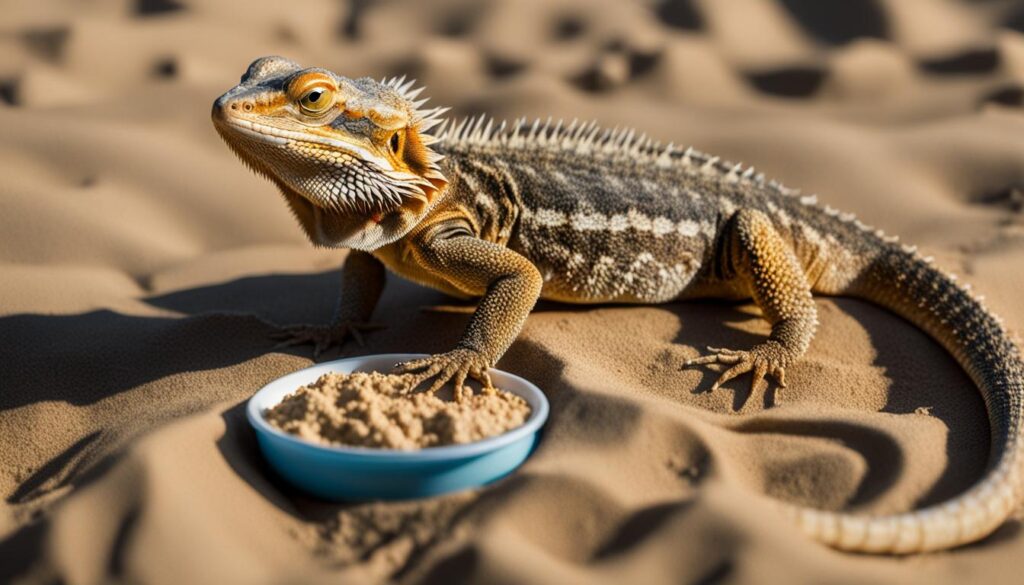
Impaction is a common issue that can affect the digestive health of bearded dragons. It occurs when indigestible material, such as substrate or large food items, becomes lodged in their digestive tract, causing a blockage. Understanding the causes and symptoms of impaction is essential for pet owners to ensure the well-being of their reptile companions.
Understanding Impaction and Its Dangers
Impaction can occur due to various reasons, including:
- Ingesting loose substrate, such as sand or gravel, while hunting or feeding
- Consuming large prey items that are difficult to digest
- Inadequate hydration, leading to dry and compacted feces
- Improper temperature regulation, resulting in decreased digestive function
Impaction can be potentially dangerous for bearded dragons if not addressed promptly. It can lead to discomfort, pain, and even life-threatening complications if left untreated. Some of the common symptoms of impaction in bearded dragons include:
- Loss of appetite
- Lethargy or decreased activity levels
- Abdominal swelling or bloating
- Difficulty defecating or absence of bowel movements
- Straining or visible discomfort while trying to defecate
- Vomiting or regurgitation
Natural Laxatives for Bearded Dragons
Preventing impaction is essential for maintaining the digestive health of bearded dragons. One way to help facilitate regular bowel movements and prevent blockages is by incorporating natural laxatives into their diet. Some natural laxatives for bearded dragons include:
- Prunes or prune baby food (without added sugar)
- Pumpkin puree (plain, canned)
- Raw papaya (blended or mashed)
- Commercial reptile-safe digestive aids
Introducing these natural laxatives in moderation and under the guidance of a reptile veterinarian can help promote healthy digestion and reduce the risk of impaction in bearded dragons.
The Relationship Between Bearded Dragon Burps and Respiratory Health
While burping may not directly indicate respiratory issues in bearded dragons, there can be a relationship between the two. Respiratory health is an important aspect of overall well-being for reptiles, including bearded dragons. Maintaining proper vivarium conditions is crucial to prevent respiratory issues and promote their respiratory health.
Bearded dragons have a unique respiratory system that requires clean and well-ventilated environments. Exposure to excessive humidity, ammonia from waste products, or poor air quality can lead to respiratory problems. It’s essential to provide them with an appropriate vivarium setup to ensure their respiratory health.
By creating a suitable vivarium environment, you can minimize the risk of respiratory issues in your bearded dragon. Here are some factors to consider:
- Adequate Ventilation: Proper air circulation helps prevent the buildup of stagnant air and reduces the risk of respiratory infections.
- Humidity Levels: Bearded dragons require specific humidity levels to maintain their respiratory health. Monitoring and adjusting humidity levels accordingly is crucial.
- Cleanliness: Regularly cleaning the vivarium and removing any waste or uneaten food helps maintain a clean and healthy environment.
- Temperature Regulation: Bearded dragons are ectothermic animals and rely on external heat sources to regulate their body temperature. Maintaining an appropriate temperature gradient is essential for their respiratory and overall health.
- UVB Lighting: Providing proper UVB lighting helps stimulate vitamin D synthesis, which is vital for calcium absorption and overall immune system function. This, in turn, contributes to respiratory health.
By paying attention to these vivarium conditions, you can help prevent respiratory issues and ensure the well-being of your bearded dragon. However, if you notice any signs of respiratory distress, such as wheezing, labored breathing, or bubbles in the mouth or nose, it is crucial to seek veterinary attention promptly. A reptile veterinarian can provide a proper diagnosis and treatment plan to address any respiratory concerns.
Preventing Respiratory Issues: Managing Vivarium Conditions
Creating and maintaining optimal vivarium conditions is crucial for the health and well-being of bearded dragons. By implementing the right conditions, you can reduce the risk of respiratory problems and promote the overall health of your bearded dragons.
| Factors to Consider | Tips |
|---|---|
| Proper Ventilation | Ensure good airflow in the vivarium by using a well-ventilated enclosure. Use a screen top or provide sufficient ventilation holes to allow fresh air to circulate. |
| Humidity Levels | Maintain the appropriate humidity levels for your bearded dragon’s species. Some species require higher humidity, while others prefer a drier environment. Use a hygrometer to monitor humidity levels and adjust as needed. |
| Temperature Regulation | Provide a temperature gradient within the vivarium to allow your bearded dragon to regulate its body temperature. Use heat lamps, heat mats, or ceramic heaters to create a warm basking area and ensure a cooler side of the enclosure. |
By maintaining proper vivarium conditions, you create a comfortable and healthy environment for your bearded dragons. This helps prevent respiratory issues and ensures their overall well-being. Remember to regularly monitor and adjust the conditions as needed to provide the best possible habitat for your beloved pets.
Monitoring Your Bearded Dragon: When to See a Vet
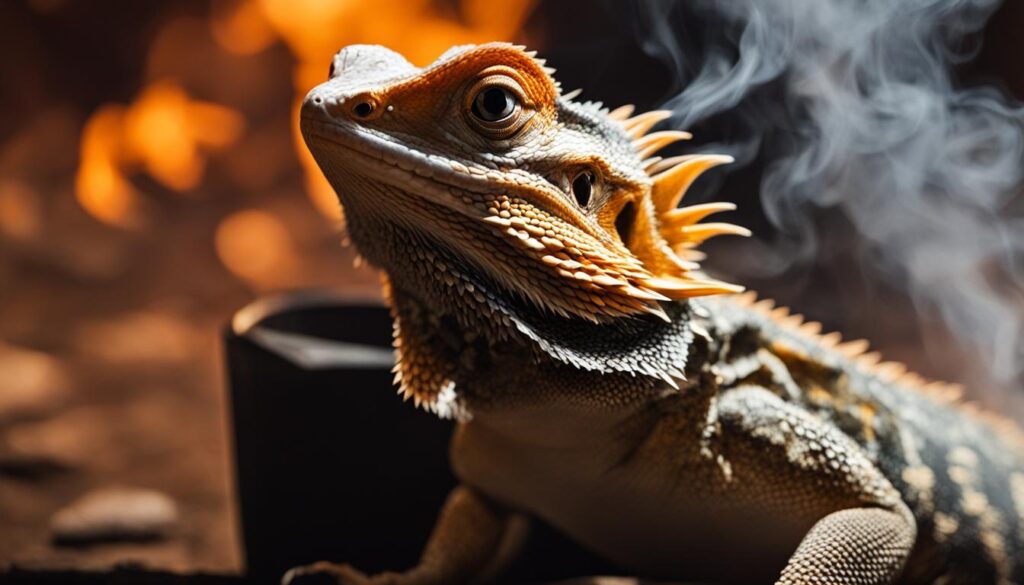
Monitoring the health of your bearded dragon is essential for early detection of any issues. While burping is a normal behavior in bearded dragons, abnormal burping may indicate underlying health problems. It’s important to be aware of the signs that warrant a visit to the vet to ensure the well-being of your beloved pet.
Interpreting Abnormal Burping
If your bearded dragon is experiencing abnormal burping, it could be a potential red flag for digestive issues or other health problems. Abnormal burping may be characterized by unusual frequency, intensity, or sound. It’s important to observe your bearded dragon closely to identify any changes in their burping behavior.
While occasional burping is normal, persistent or excessive burping could indicate gastrointestinal distress, impaction, respiratory issues, or other health concerns. If you notice any changes in your bearded dragon’s burping patterns, it’s best to seek professional guidance from a veterinarian who specializes in reptiles.
Other Symptoms Accompanying Excessive Burping
Excessive burping in bearded dragons can sometimes be accompanied by other symptoms that indicate potential health problems. It’s crucial to be vigilant and watch out for any of the following signs:
- Loss of appetite or refusal to eat
- Weight loss or unexplained changes in body condition
- Lethargy or lack of energy
- Abnormal bowel movements (diarrhea, constipation, or changes in color or consistency)
- Difficulty breathing or wheezing
- Swollen or bloated abdomen
- Changes in color or texture of the skin
If your bearded dragon is displaying any of these symptoms alongside excessive burping, it’s crucial to consult a veterinarian immediately. Early detection and proper diagnosis can significantly contribute to the successful treatment and well-being of your bearded dragon.
| Signs to See a Vet | Possible Health Issues |
|---|---|
| Abnormal frequency, intensity, or sound of burping | Gastrointestinal distress, impaction, respiratory issues |
| Loss of appetite or refusal to eat | Illness, digestive problems |
| Weight loss or unexplained changes in body condition | Underlying health issues, malnutrition |
| Lethargy or lack of energy | Weakness, infection |
| Abnormal bowel movements (diarrhea, constipation, or changes in color or consistency) | Digestive problems, parasite infestation |
| Difficulty breathing or wheezing | Respiratory issues, infection |
| Swollen or bloated abdomen | Gastrointestinal distress, impaction |
| Changes in color or texture of the skin | Skin infection, shedding issues |
Conclusion
In conclusion, burping is a normal and natural behavior for bearded dragons as part of their digestion process. However, excessive or abnormal burping could indicate underlying health issues that need to be addressed. By understanding the behaviors of bearded dragons, ensuring proper hydration and diet, and consistently monitoring their overall health, pet owners can ensure the well-being of their beloved reptiles.
If you notice any concerning signs, such as persistent and excessive burping, it is crucial to seek guidance from a veterinarian who specializes in reptiles. These professionals can provide expert advice and guidance tailored specifically to bearded dragons, helping to diagnose and address any potential health problems in a timely manner.
Remember, taking proactive measures when it comes to the care of your bearded dragon is essential. By staying informed, providing a suitable environment, and seeking professional assistance when needed, you can enjoy the companionship of a healthy and happy bearded dragon for years to come.
FAQ
Can bearded dragons burp?
Yes, bearded dragons have the ability to burp. Burping is a normal and natural behavior related to their digestion.
What are some common bearded dragon behaviors?
Bearded dragons exhibit unique behaviors influenced by their environment, health, and overall well-being. Some common behaviors include basking, head bobbing, glass surfing, and arm waving.
What is the anatomy of burping in bearded dragons?
Burping in bearded dragons is caused by the release of gas from their gastrointestinal tract. It is a normal process that helps them expel excess air from their stomach.
How can I distinguish between bearded dragon burping and vomiting?
Burping is a normal digestive function, while vomiting can indicate underlying health issues. Burping is typically a quick and harmless release of gas, while vomiting involves the forceful expulsion of stomach contents.
How does hydration and diet affect bearded dragon digestion?
Proper hydration and a balanced diet are crucial for maintaining the overall digestive health of bearded dragons. Adequate water intake and a varied diet promote proper digestion and can help prevent issues like excessive burping.
What are the signs of gastrointestinal distress in bearded dragons?
Signs of gastrointestinal distress in bearded dragons include loss of appetite, bloating, constipation, diarrhea, and abnormal burping or vomiting.
What is impaction and how does it affect bearded dragons?
Impaction occurs when a bearded dragon ingests foreign objects or has difficulty passing stool. It can lead to digestive issues and may require medical intervention. Signs of impaction include lethargy, loss of appetite, and difficulty defecating.
Is there a connection between bearded dragon burping and respiratory health?
While burping itself is not directly linked to respiratory issues, maintaining proper vivarium conditions is important for preventing respiratory problems that can affect bearded dragon health.
How can I prevent respiratory issues in my bearded dragon?
Proper vivarium conditions, including proper ventilation, humidity levels, and temperature regulation, can help prevent respiratory issues in bearded dragons.
When should I seek veterinary care for my bearded dragon?
If your bearded dragon is experiencing abnormal burping along with other symptoms such as difficulty breathing, wheezing, coughing, lethargy, or loss of appetite, it is recommended to seek veterinary care. These signs may indicate underlying health problems that require professional attention.
What should I do if I think my bearded dragon has swallowed a foreign object?
If you suspect your bearded dragon has swallowed a foreign object, it is important to seek veterinary assistance immediately. A veterinarian can perform a thorough examination and provide the necessary treatment to ensure the object is safely removed.

